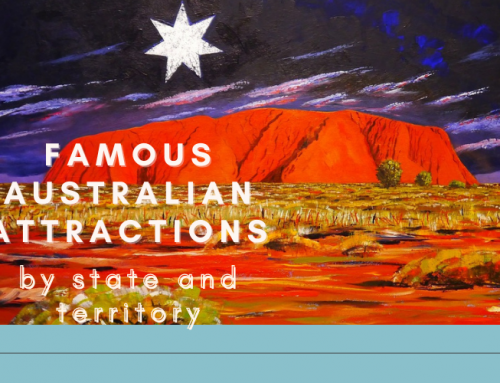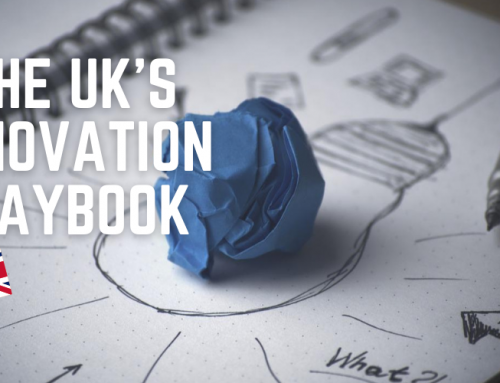No pandemic can stop international student Bianca Isabel Santos from earning an Australian degree at James Cook University, Brisbane.
All systems go when the Australian borders opened for international students last December 2021 for eligible visa holders including international students and Temporary Graduate (Subclass 485) visa holders. As one of the world’s sought-after study destination, Australia has ensured that protocols are in place to support international students onshore and those who were about to embark on an international student journey but has not yet set foot in the country.
Many international students have pressed on with their objectives despite the hurdles in 2020–whether completing their degree or lodging their applications to select education institutions. For Bianca, an international student from the Philippines, pursuing Master of International Tourism and Hospitality Management at James Cook University, Brisbane was a natural progression for her regardless of the COVID-19 situation. Bianca and her partner both applied for a student visa and arrived in Australia in March 2020.
In an inclusive interview, Bianca shared with us significant insights on how it is possible to study and complete a degree in Australia at the height of a global pandemic.
Living Arrangements
Bianca and her partner were not new to international study experience as they both had experience doing an internship in the US. To their advantage, some of their friends from the internship also pursued an education in Australia and they decided to share a house with them for the first few months.
“Due to COVID-related issues and other financial stuff, we all decided to break away by partners. My partner and I are now living at an apartment, wherein it’s just the two of us.”
A Typical School Day
Bianca was fortunate enough to arrive in Australia a week before the country closed its borders. Commenting on her first Australian campus experience, she said:
“We didn’t know what it was like to not be affected by COVID. However, it didn’t feel like there was much of a difference, just more caution when it came to being in contact with others, a lot more sanitation, masks, social distancing, etc. Even when we started school when we arrived here in Australia, we were only doing 3 days max (1-2 subjects, around 3-4 hours each). There were a few terms wherein we only went to uni twice a week because we were able to get 2 subjects per day.”
She shared with us her typical day, from planning a commute to school to preparing meals and exploring the city for leisure.
“When we first arrived here, we had to travel around 40 minutes – 1 hour by bus from our house to uni. Their bus usually comes at the same time every day, at intervals, so we make sure to check the schedule through the Translink app before we sleep so we’d know what options we have for the bus times the next day. If we’re having a morning-afternoon class, we’d normally be up at least 2 hours before our class since we don’t normally have breakfast on uni days. This way, we also have some time to make room for any emergencies/delays. If we only have 1 class for the day, we’d go straight home after uni to just whip something up at home. “
“But on days wherein we have two classes, we try and explore a little bit of the city during the break and find something preferably less than $15/ea that will fill us up through the night. Normally, we are successful because our uni is right in the middle of the city anyway so there are a lot of options around,” she added.
Bianca usually ends her day around 6 pm and normally eats dinner at home to save more. When meeting with friends after classes, she and her partner usually have dinner at someplace in the city.
Building A Social Circle and Getting Support
Luckily, Bianca has already formed her core social circle even before going to Brisbane since her friends from her US internship had also decided to study in Australia. On making new friends, she said:
“We also made a couple of good friends from uni that we still meet from time to time. Majority of our friends though are from our workplace. So I’d say, we have friends from different nationalities—but definitely more international friends than Filipinos here.”
When asked about her Uni’s international student support, Bianca explained:
“Our uni’s population is mostly international students. I don’t think we’ve met a single student who is Australian during the 2 years we’ve gone there. Therefore, there are some events that are geared toward international students such as the multicultural lunch and the students’ “social” night, which happens every trimester.”
A typical after-school activity for her is going out for lunch or dinner with friends from home or uni, having a couple of drinks, or playing pool.
Working Part-Time
Australian student visa holders, both undergraduate and postgraduate, are eligible to work part-time up to 40 hours a fortnight in the academic year and unlimited hours during the summer holidays. However, due to the workforce shortages, the Australian government has implemented temporary relaxation of student visa work limits, which means international students can now work “before their course commences and work more than 40 hours a fortnight in any sector of the economy” until the next review of the Government on April 2022.
For Bianca who arrived right on the onset of the pandemic, finding a part-time job became a challenge, at least for the first six months. She shared:
“We weren’t very fortunate to be able to land a job/jobs when we arrived because COVID was almost at its peak then and almost every establishment was either closing down indefinitely or cutting back staff members.”
As the economy slowly eased into the new normal and most establishments were ready to welcome part-timers again middle of 2020, Bianca landed on two part-time jobs, one of which she was able to keep until now.
“The most I’ve had at the same time was 2 part-time jobs, on top of being a full-time student. When I don’t have a class, I would usually wake up at 4:30 am and travel to work. I go and open the cafe at around 5:30 am and work at the kitchen alone and close the cafe down with the barista/s at around 3 pm. Immediately after, I’d run to catch the bus and travel for about 50 minutes by bus to be at my next workplace before 5 pm, work at the kitchen by doing service, doing the rubbish bins, washing all the dishes, and washing and sanitizing the whole kitchen down, and finally closing the kitchen down all alone at around 10:30 pm to 11 pm and run and try to catch the bus to be home by 12midnight and do the same thing over again the next day.”
After all the unprecedented challenges not only for an international student but also for having been in a foreign country during a pandemic, Bianca has completed her postgraduate degree in hospitality. Sharing her next goal, she quipped:
“I aspire to be doing a job that doesn’t make me feel like I’m working, whether it be in the BOH (Back of the House) or culinary field (still) or the tourism or FOH (Front of House). It would also be great to still be able to travel the world, while I do so.”
Thank you very much Bianca for sharing your international student experience in Australia which is definitely valuable for aspiring students. Cheers and we wish you the best in your professional career in the tourism industry.






